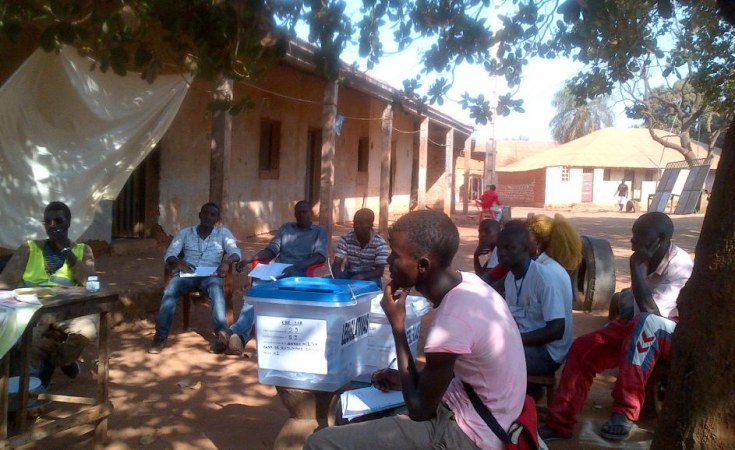When Guinea's Supreme Court announced the final results of the legislative elections on November 15, 2013, Guineans finally, and quite understandably, breathed a massive sigh of relief.
This long-awaited sense of reprieve came after elections took place on September 28th, following numerous postponements, nearly three years of political and social tension, the deaths of dozens of innocent people, and property damage totaling millions of US dollars.
While many feel the election results signaled an end to the rollercoaster of events that characterized Guinean politics for the last few years, this is certainly not the time for Guineans to put up their feet and relax.
Reliving the anguish and turmoil of past years is not an option for Guineans. With the next presidential elections taking place in less than two years, two key issues must be resolved now - rather than later - for there to be peaceful and credible elections in 2015. These are the drawing up of a voter register and reforming the legal and institutional framework for elections.
Stakeholders must determine whether a new biometric voter register should be drawn up before the 2015 presidential polls, as Article 9 of the July 2013 "Agreement on the Preparation and Organization of Legislative Elections" seems to suggest. In the best-case scenario, the registration process will take at least twelve months to complete, from selection of a technical operator to settling any legal disputes over the register.
Political obstacles will inevitably arise during this process, which only reaffirms why immediate planning is imperative.
If nothing else, the September 2013 legislative elections revealed shortcomings in the legal and institutional framework of Guinea's electoral system, such as a weak Independent National Electoral Commission (INEC) and gaps in the Electoral Code and Constitution. Thus all stakeholders in the electoral process, namely politicians, parliamentarians and government officials should first - and rapidly - reach a consensus on the nature and depth of necessary electoral reforms. In other words, they must ascertain what can be done, what should be done and what must be done given the available time, the political environment and the practicality of implementation.
For instance, INEC's current partisan structure instils confidence neither in politicians nor in citizens. Stakeholders need to decide whether there should be a new type of INEC, perhaps one that is purely technical, or an external mechanism with organic functions and a composition that would reassure political actors. Alternatively, perhaps the current INEC simply needs to be internally reorganized.
Likewise, in reforming the Constitution and Electoral Code, resolute pragmatism dictates that the choice of reforms should be governed by the imperative to prevent empty political debate from taking precedence over the concrete and practical resolution of the issues needing attention.
There is a serious lack of trust among the different actors in the electoral process. This also characterized the 2013 legislative elections.
Not only must decisions on INEC and electoral reform be made in a clear, open and honest manner, but all parties must also be willing to put aside partisanship to achieve the two-thirds parliamentary majority needed for the rapid enactment of laws dealing with the roles of the Constitutional Court in election-related disputes and the High Communications Authority in regulating media. Passing such laws is an integral part of ensuring fairness during the electoral process, thus boosting the confidence of stakeholders.
Although the primary responsibility for these changes falls on the government and parliamentarians, civil society can inform public opinion and guide politicians - who are preoccupied with their partisan interests - away from driving the reform process to a stalemate. Beyond conventional technical and financial support, development partners should offer solutions to the challenges I have outlined and help ensure full implementation of the July 2013 Agreement.
Guinea is clearly still finding its way on its path to democracy. The "success" of carrying out legislative elections in 2013 does not mean the government, the international community and civil society are out of the woods. Fundamental reforms must still be made. Only by acting now can stakeholders ensure that they have time to plan effectively and work together so that the presidential elections in 2015 stand a greater chance of success.
Mathias Hounkpe is Political Governance Manager of the Open Society Initiative for West Africa. Follow Mathias on Twitter @Coffi_12


